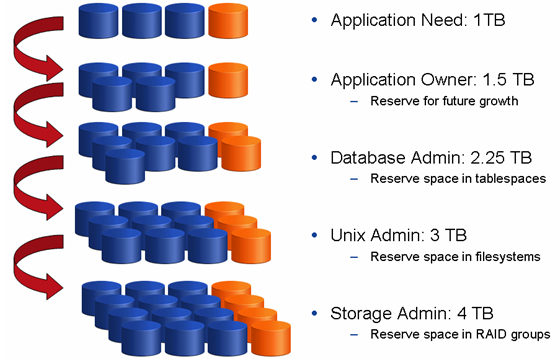 A question I tend to ask my customers almost always is what their current state is regarding IT transformation and journey to the cloud. Of course such a strategy does not work very well on bare metal and some kind of isolation between services and physical hardware is required – which naturally includes virtualization, as well as the use of some kind of container technology, as-a-Service paradigms, changes in IT administration and operations etc.
A question I tend to ask my customers almost always is what their current state is regarding IT transformation and journey to the cloud. Of course such a strategy does not work very well on bare metal and some kind of isolation between services and physical hardware is required – which naturally includes virtualization, as well as the use of some kind of container technology, as-a-Service paradigms, changes in IT administration and operations etc.
Nearly always the answer includes “We already virtualized everything! … Well, ehm, except Oracle….”
TL;DR: There are no more roadblocks for virtualizing Oracle, including license issues. See the last section “Mythbusting” of this post for a summary on myths and truths.


 The idea is that many database servers are suffering from IO wait – which actually means that the processors are waiting for data to be transferred to or from storage – and in the meantime, no useful work can be done. Given the expensive licenses that are needed for running commercial database software, usually licensed per CPU core, this then leads to loss of efficiency.
The idea is that many database servers are suffering from IO wait – which actually means that the processors are waiting for data to be transferred to or from storage – and in the meantime, no useful work can be done. Given the expensive licenses that are needed for running commercial database software, usually licensed per CPU core, this then leads to loss of efficiency. A public transport company in a city called Galactic City, needs to replace its aging city buses with new ones. It asks three bus vendors what they have to offer and if they can do a live test to see if their claims about performance and efficiency holds up.
A public transport company in a city called Galactic City, needs to replace its aging city buses with new ones. It asks three bus vendors what they have to offer and if they can do a live test to see if their claims about performance and efficiency holds up. A while ago somebody forwarded me a research paper from an “independent” research firm in which the cost of
A while ago somebody forwarded me a research paper from an “independent” research firm in which the cost of 

